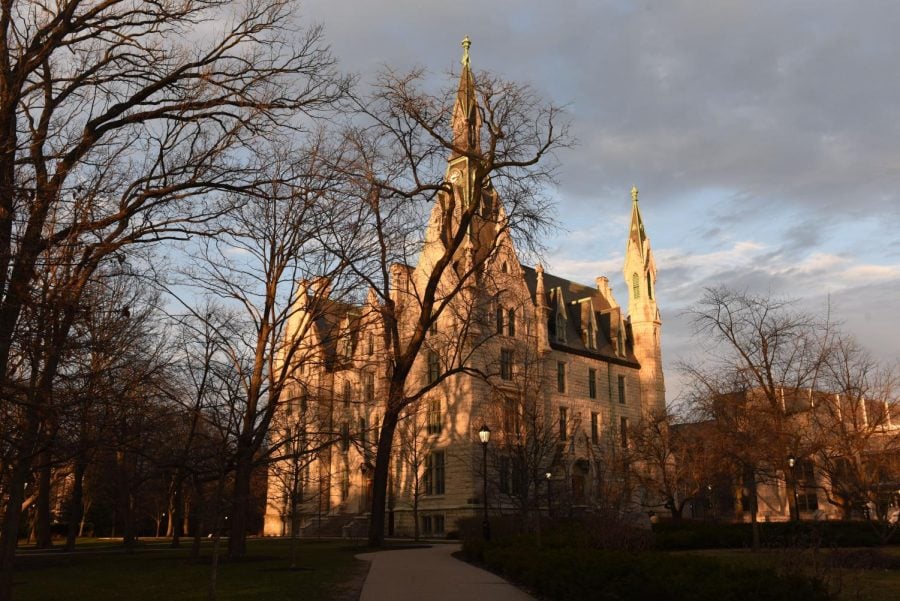Writers Carolyn Ferrell, Grace Cho and Solmaz Sharif discuss writing goals, advice at 14th Annual Writers’ Festival
Daily file photo by Nick Francis
University Hall. Writers gathered at a guided conversation to discuss their own writing goals and advice for aspiring writers.
May 11, 2022
After a week of offering masterclasses and readings, visiting writers Carolyn Ferrell, Grace Cho and Solmaz Sharif discussed their goals as writers, advice for researching and writing and future plans.
The conversation, moderated by English Prof. Juan Martinez, marked the end of the 14th Annual Writers’ Festival, which ran from May 9 to 11. Every year, the English department invites prominent poetry, fiction and nonfiction writers to campus. Due to the pandemic, this was the first time since 2020 where writers visited campus in-person.
Martinez began by asking writers their goals when writing. As a nonfiction author and academic, Cho said she plays a role in “knowledge production,” which comes with the responsibility of shaping how people view the world. However, she said she still writes based on her own interests.
“I don’t know that I write for anyone other than myself,” Cho said. “It’s really driven by a deep desire for me, although I’m always thinking about other people who are implicated in it as well.”
Ferrell, a fiction writer, said reading Cho’s memoir “Tastes Like War” on the plane traveling to Evanston, she felt this “white heat” situation of getting completely lost in a book and forgetting everything else.
Ferrell said these experiences reading literature not only make her feel moved as a reader, but also inspired as a writer.
“My response to everything is through writing,” Ferrell said. “I take assiduous notes because … that’s how I perceive the world.”
Martinez also asked the writers about how they set productive boundaries for their writing. Solmaz said she often puts away pieces of writing and returns to them months later. This process cannot be rushed and involves lots of writing and rewriting to see what sticks, she said.
Ferrell said she has a sign above her desk that says “Just as an Exercise” to encourage her to keep writing even when she doesn’t want to. She said she tries to interact with her work every day in whatever capacity she can.
“Every single day, I touch my work and sometimes that just means touching with my eyeball and not typing anything, but that’s really my best practice,” Ferrell said.
While she has not been very successful making time for writing during the academic year, Cho said she tries to set aside 25 minutes during the day to write down whatever ideas come to her mind.
To Cho, this does not feel like a piece of writing, she said, but rather a collection of thoughts and ideas.
“Over the course of filling a couple of notebooks, I’ve looked and seen two possible projects emerge from that just based on what so much in my mind is occupied with,” Cho said.
Before opening the conversation up to the audience, Martinez asked panelists to offer advice for writing students who are graduating this year.
Sharif said she did not have a direct path after college. She said she initially thought she would go into literary arts administration and work for nonprofits, but soon decided it was not a good fit. She then applied for Master of Fine Arts programs and law schools as a backup choice.
“I just remember being 20 years old and driving in my car to a party and realizing and announcing that I wanted to be a poet,” Sharif said.
In response to a question about upcoming projects or goals, Ferrell said she plans to write for as long as she can.
“I feel like I could live until I’m 179 and still not get to everything I want to do,” Ferrell said.
Email: [email protected]
Twitter: @carolinelbrew
Related Stories:
— Sex therapist Casey Tanner imagines more expansive sex education at NU Sex Week panel


